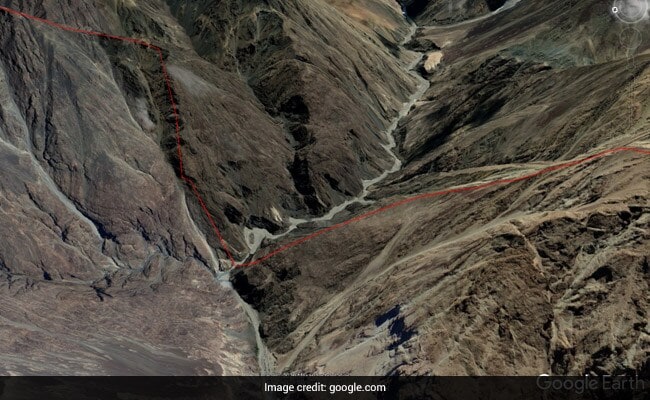
Several soldiers fell into the icy Galwan River during the clash between Indian and Chinese troops at eastern Ladakh in which 20 Indian soldiers have been killed. Army sources have told NDTV that they are certain up to 45 Chinese soldiers have been killed or injured in the incident, which marked a massive escalation after weeks of tension simmering at the border. Some reports indicate that a few of the Indian soldiers involved in the clash are in a critical condition.
New details have emerged on what went down on Monday, June 15, when a small Indian patrol party moved to remove a Chinese tent in the Galwan river valley at 15,000 feet. China had agreed to remove the tent after talks between Lieutenant General-ranked officers of both sides on June 6.
The troops had agreed to withdraw to create an area that would separate the forces and ensure peace.
Sources said a physical fight broke out after the Chinese soldiers targeted the Indian Colonel, BL Santosh Babu. They were attacked with batons and rods with nails.
Reinforcements were called in by both sides on several occasions, say army sources. There are multiple injuries on both sides.
Several soldiers fell into the Galwan River during the fight that started around Monday afternoon and went on for six hours. Extreme cold and hypothermia worsened the situation.
The Army, after confirming the death of a Colonel and two jawans on Tuesday morning, said in another statement later that 17 more critically injured were "exposed to sub-zero temperatures... (and) succumbed to their injuries".
A full-fledged evacuation of soldiers could only happen on Tuesday morning, the army sources have said. The sources say the evacuation of Chinese soldiers has been observed in the area after the clash. A statement from the Foreign Ministry last evening said troops were disengaging in the Galwan Valley.

Several soldiers fell into the Galwan River during the fight that started around Monday afternoon and went on for six hours.
"The loss of soldiers in Galwan is deeply disturbing and painful. Our soldiers displayed exemplary courage and valour in the line of duty and sacrificed their lives in the highest traditions of the Indian Army," said Defence Minister Rajnath Singh.
"The nation will never forget their bravery and sacrifice. My heart goes out to the families of the fallen soldiers. The nation stand shoulder to shoulder with them in this difficult hour. We are proud of the bravery and courage of India's breavehearts".
Army sources have told NDTV that after this incident, they are looking to change their protocols and rules of engagement in countering Chinese soldiers.
At the moment, Indian soldiers, even if they are armed, are under strict instructions not to open fire in the event of a fight with the Chinese. Sources have told NDTV that after the latest incident, these protocols will need to be revisited in order to give Indian soldiers a more robust set of rules to engage with Chinese forces. A final decision on this is yet to be taken by the Army's hierarchy.
In a statement late Tuesday evening, India said it remained committed to peace on the border with China and had always operated on its side of the Line of Actual Control. "The clash followed an attempt by the Chinese to alter the status quo in violation of de-escalation terms agreed to in recent talks," said foreign ministry spokesperson Anurag Srivastava.
China's foreign ministry spokesman Zhao Lijian claimed Indian soldiers had crossed the LAC - which was rejected by New Delhi -- and warned India against making any unilateral movement that could complicate the situation.
Track Latest News Live on NDTV.com and get news updates from India and around the world

